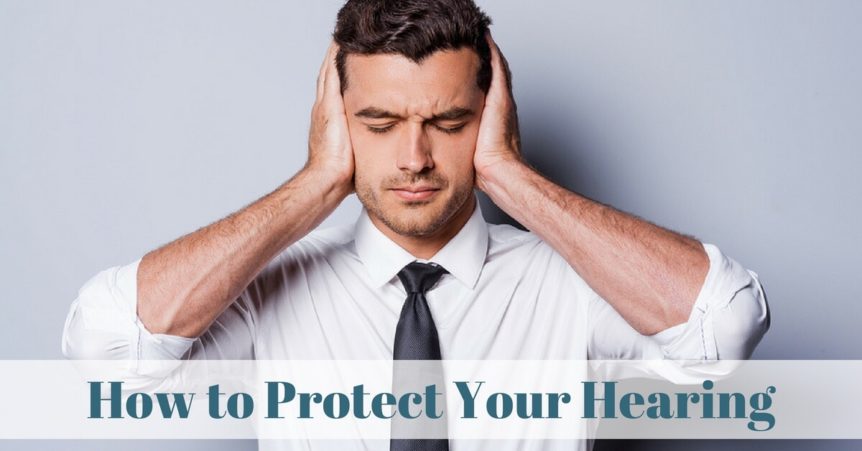Damaging your hearing is no light matter – our inner ears are delicate instruments and most hearing loss is ultimately permanent. If you value your hearing, know how to take care of it. Here are a few things to keep in mind:
Recognize hazardous noise levels
Pay attention to how loud the environment around you is. All noise projected at 85 decibels and above is considered hazardous to human hearing and acceptable exposure times get exponentially shorter as noise gets louder. For example, heavy traffic in the city produces sound at about 85 decibels, and would start to cause damage to your hearing after around 8 hours of continuous exposure. By contrast, a rock concert that is amplifying sound at around 100 decibels can start to damage your hearing after just 15 minutes.
If you think you’re in a noisy place, err on the side of caution and wear ear protection. Earplugs and earmuffs help block harmful noise levels and preserve your hearing. Some products have a Noise Reduction Rating that can help you determine their efficacy. There are even smart phone apps like TooLoud And dB Volume Meter that can help you keep track of when you are being exposed to dangerous levels of noise.
Additionally, when you are at a loud event, take short breaks often to give your ears some rest from the noise. If it’s possible, plan extended quiet time after you’ve been exposed to continuous loud sound, it will help your ears recover from overstimulation.
Limit your time with headphones
The use of headphones and ear buds may be responsible for the demographics of hearing loss skewing younger in recent years. Ear buds, which project sound directly into the ear canal, are especially bad for your ears – they can damage your hearing quickly and permanently if used at an excessive volume. Hearing experts recommend no more than one hour of headphone use a day, and keep your sound source at around 50% volume or less.
Practice good ear hygiene
For the most part, our ears are self-cleaning and require very little interference to keep them healthy. Earwax develops in our ears to help keep dust and particles out of our sensitive ear canal, and it’s a healthy part of our auditory system. Our body moves old earwax out of the ear naturally, with the motion of our jaw. You should never stick a cotton swab inside your ear. Often, swabs do more harm than good in your ear by impacting the earwax you meant to remove, leaving behind fibers and even risking the possibility of puncturing your eardrum.
It is also important to keep your ears dry to discourage harmful bacteria. Painful ear infections, like swimmer’s ear, are often the result of dampness in the ear encouraging bacterial growth. After you’ve been in water, tip your head towards to each side as you dry off to allow any liquid in your ears to drain out. If you swim regularly, you may want to purchase a pair of swimming earplugs, especially designed to keep your ear canal dry.
General ear care should be basic and gentle. Simply clean the outside of your ears with warm water and dry them thoroughly. You can loosen earwax with warm water or earwax removal solution, but never forcefully squirt or insert anything into your ear to clean it.
Get your hearing checked regularly
Hearing loss is incredibly common, but it also can be hard to recognize. Make hearing exams part of your regular annual physical to help detect hearing impairment early.
Hearing loss is often gradual and as hearing ability declines, our cognitive abilities scramble to compensate. As our brain reprograms how it hears sound, cognitive challenges can compound into mental confusion and increased rates of depression, anxiety and isolation. Finding and treating hearing loss early helps us avoid that path. Solutions for hearing clearly help keep our comprehension sharp without overworking the brain. The result is not just better hearing, it is literally peace of mind.
Custom Hearing Solutions
If you have questions about your hearing health, or if you’d like to set up a consultation with a hearing specialist, here at Custom Hearing Solutions we’re happy to help you. Make an appointment today to start hearing your best.

